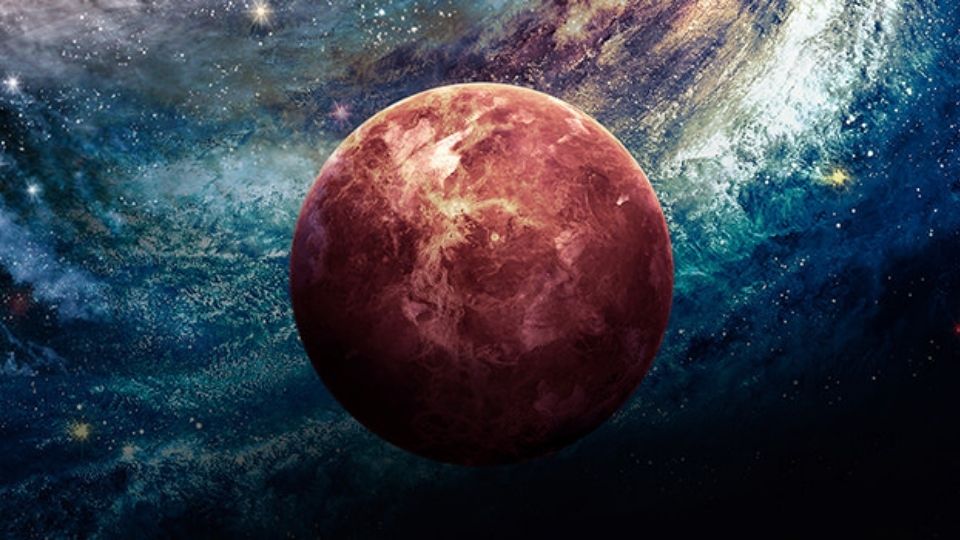“There are so many stars shining in the sky, so many beautiful things winking at you, but when Venus comes out, all the others are waned, they are pushed to the background.”
Venus is the second planet in our Solar System, and has, arguably, captured humanity’s imagination more than any other. Visible to most in the night sky, Venus is the closest planet to Earth and has earned the nickname ‘the Evening Star’.
The planet has earned the reputation of being Earth’s ‘evil twin’; it is a similar size to our home planet and recent discoveries indicate its formation mirrors Earth, with most scientists in agreement that Venus was once able to support water, driving our understanding for Earth-like planets and habitability. Venus has played a vital role in the history and culture of countless civilisations and continues to inspire wonder amongst the scientific and astrological communities. Join us at What We Reading for the most fascinating books about Venus!
Venus Revealed: A New Look Below The Clouds Of Our Mysterious Twin Planet – David Grinspoon
Still lauded as one of the most comprehensive guides to everything we know about our closest planet, Venus Revealed is a 1997 book by David Grinspoon. The first book published that documents the incredible findings from the Magellan programme, Grinspoon brings to life the active volcanoes, shining valleys and river currents carved out of flowing streams of lava. He documents Venus in its present state and unveils the findings that helped scientists work out what its past might have looked like in the process.
The result is a stunning read that helps readers understand how findings from Venus can help us answer pressing environmental questions about our home planet.

Venus – William Shaheen
From the latest scientific discoveries to tips for amateur astronomers, William Shaheen’s 2022 book remains one of the best books about Venus. Shaheen’s work is a beautifully illustrated account of the planet, documenting the history of our studies of it over the years, published and planned projects and the enduring mysteries that continue to surround the second member of the Solar System.
Finally, Shaheen answers the most asked question about the planet: could Venus have supported life? Comprehensive and compelling in its delivery, Venus captures the awe of astrological discovery with all the scientific findings anyone with a vested interest in space will find illuminating.
Everyone’s Guide To Venus – Roselle Garland
For one of the most accessible books about planet Venus, look no further than Roselle Garland’s Everyone’s Guide to Planet Venus. This Venus book is designed to further every reader’s understanding of the second planet from the sun, delving into the characteristics, geology, structure and habilitality.
A compilation of the best articles sourced from across the internet, this 2018 book also features a comprehensive run-through of the exploratory efforts man has made to the planet over the years.
Check Out The Best Books About Mercury
The Secrets Of Venus – Emma Carlson Berne
Whilst Venus is the easiest planet to see in the night sky, there are still countless secrets it holds for us here on Earth. In The Secrets of Venus, YA author Emma Carlson Berne attempts to guide readers through the mysteries surrounding the planet that have captured humanity’s imaginations throughout history.
From ancient cultures to contemporary astrological missions, Carlson Berne takes readers through the discovery of the planet, what it would be like to visit it, and what secrets scientists are still hoping to learn from it. Vivid photographs and sidebars help make this one of the most informative books about Venus available.
The Scientific Exploration Of Venus – Fredric Taylor
For one of the best books about Venus that captures the similarities and striking differences between the brightest object in the night sky and planet Earth, look no further than Fredric Taylor’s The Scientific Exploration of Venus. Taylor, one of the leading researchers of the planet, brings to life the stunning composition of Venus in order to answer the question: ‘Why is it so different to Earth?’
From there, he combines the latest findings with his own scientific discoveries to bring together some of the most convincing arguments about the formation and development of Venus as a planet, and how these findings can translate to pressing issues on our own planet such as the role of greenhouse gases on global warming.
The Twin Sister Planets Venus And Earth: Why Are They So Different? – Robert Malcuit
For another insightful read about the comparisons between Earth and its closest neighbour, Robert Malcuit’s The Twin Sister Planets Venus and Earth should be a go-to.
Malcuit’s work is one of the most detailed and meticulously assembled studies on the rocky planet, covering everything from the similar chemical composition, zonation, size and heliocentric distance from the Sun to the vast differences when it comes to the two bodies’ surface levels. Malcuit also explains the ‘fatal attraction scenario’, which would see further differences in Venus’ relationship with its sole orbitary satellite compared to Earth and its moon.
Part-time reader, part-time rambler, and full-time Horror enthusiast, James has been writing for What We Reading since 2022. His earliest reading memories involved Historical Fiction, Fantasy and Horror tales, which he has continued to take with him to this day. James’ favourite books include The Last (Hanna Jameson), The Troop (Nick Cutter) and Chasing The Boogeyman (Richard Chizmar).


